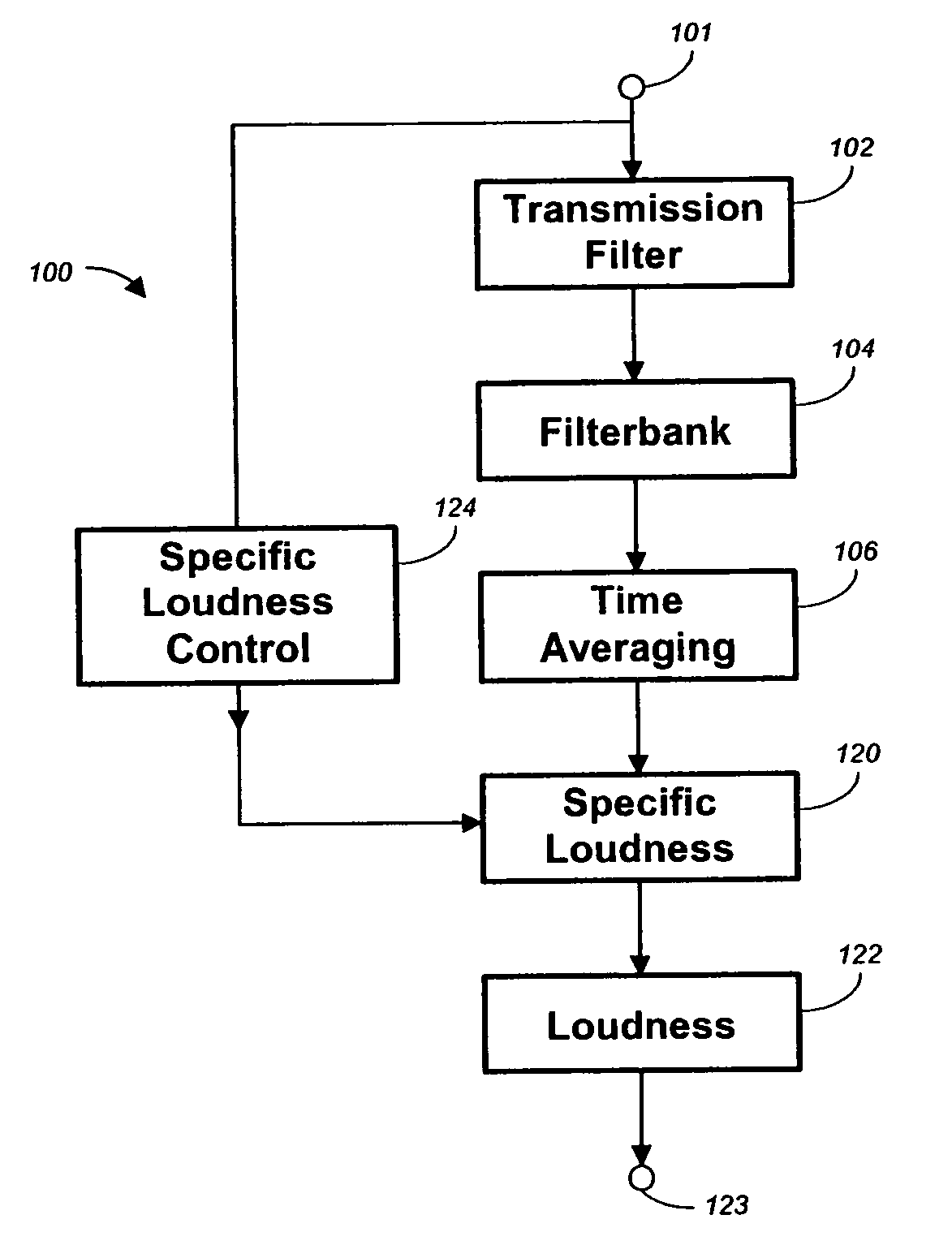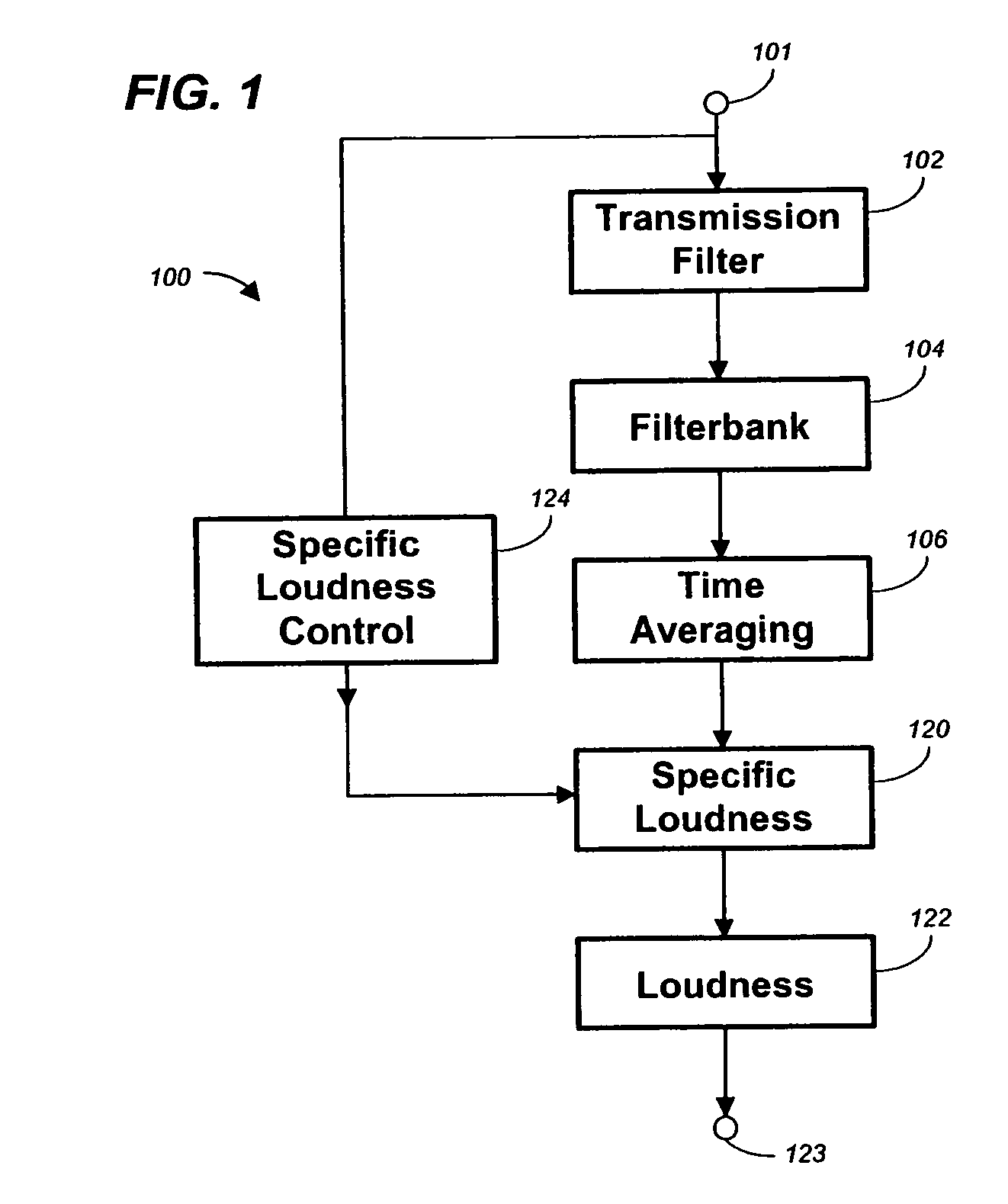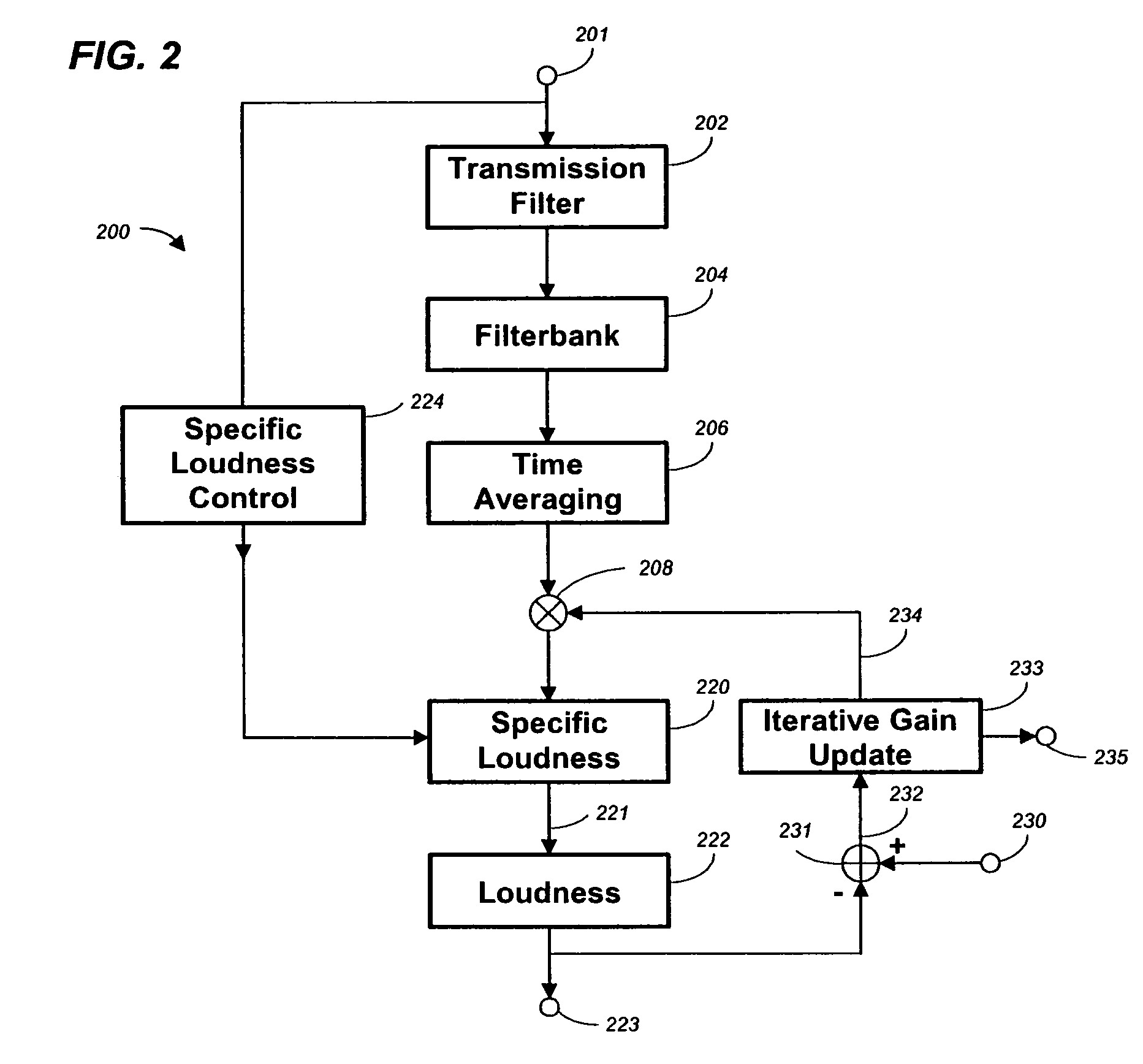Method, apparatus and computer program for calculating and adjusting the perceived loudness of an audio signal
a technology of perceived loudness and measurement method, applied in the field of loudness measurement of audio signals, can solve the problems of difficult quantification, clear impractical approach to standard, day-to-day, loudness measurement, and measurement of more complex sounds that did not match the subjective impression of loudness very well, and achieve the effect of perceived loudness
- Summary
- Abstract
- Description
- Claims
- Application Information
AI Technical Summary
Benefits of technology
Problems solved by technology
Method used
Image
Examples
Embodiment Construction
[0033]As described in greater detail below, an embodiment of a first aspect of the present invention, shown in FIG. 1, includes a specific loudness controller or controller function (“Specific Loudness Control”) 124 that analyzes and derives characteristics of an input audio signal. The audio characteristics are used to control parameters in a specific loudness converter or converter function (“Specific Loudness”) 120. By adjusting the specific loudness parameters using signal characteristics, the objective loudness measurement technique of the present invention may be matched more closely to subjective loudness results produced by statistically measuring loudness using multiple human listeners. The use of signal characteristics to control loudness parameters may also reduce the occurrence of incorrect measurements that result in signal loudness deemed annoying to listeners.
[0034]As described in greater detail below, an embodiment of a second aspect of the present invention, shown i...
PUM
 Login to View More
Login to View More Abstract
Description
Claims
Application Information
 Login to View More
Login to View More - R&D
- Intellectual Property
- Life Sciences
- Materials
- Tech Scout
- Unparalleled Data Quality
- Higher Quality Content
- 60% Fewer Hallucinations
Browse by: Latest US Patents, China's latest patents, Technical Efficacy Thesaurus, Application Domain, Technology Topic, Popular Technical Reports.
© 2025 PatSnap. All rights reserved.Legal|Privacy policy|Modern Slavery Act Transparency Statement|Sitemap|About US| Contact US: help@patsnap.com



